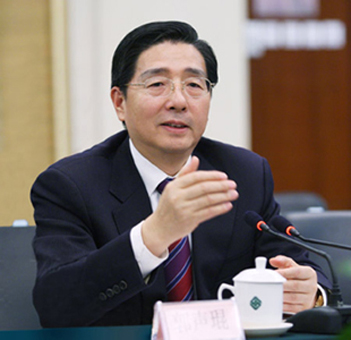Take Guo Shengkun for example. He is now the Party chief of Guangxi Zhuang Autonomous Region. Seven years ago, as the CEO of the Aluminum Corporation of China (Chinalco), he showed great determination in pushing through Chinalco's listings on the Hong Kong and New York stock exchanges in the wake of the September 11 terrorist attacks in 2001.
 Chinalco's stock float was well under way when the terrorist attack occurred, triggering a plunge of the US stock market. But even under such gloomy circumstances, Guo persisted in floating the shares as scheduled. His decision, however, met with objections from Chinalco's lead underwriter, Morgan Stanley and its joint global book-runner, China International Capital Corporation (Hong Kong) Limited. Morgan Stanley's board chairman even wrote personally to Guo in order to try to talk him out of his decision.
Chinalco's stock float was well under way when the terrorist attack occurred, triggering a plunge of the US stock market. But even under such gloomy circumstances, Guo persisted in floating the shares as scheduled. His decision, however, met with objections from Chinalco's lead underwriter, Morgan Stanley and its joint global book-runner, China International Capital Corporation (Hong Kong) Limited. Morgan Stanley's board chairman even wrote personally to Guo in order to try to talk him out of his decision.
Then, more bad news came out. Chinalco's co-underwriters, Merrill Lynch and the Goldman Sachs issued a new research report lowering their forecast for aluminum prices. Alcoa, which was expected to take an 8 percent stake in Chinalco, cut 6,500 employees on a global scale due to the gloomy prospects on the world market. Reasonably, PricewaterhouseCoopers suggested its client, Chinalco, lower its 2001 profit forecast.
Faced with these difficulties, Guo did not waver. He stuck to his plan and decided to persuade the investors by holding face-to-face talks with each of them. This approach, which took a lot of time and energy, nevertheless worked very well. Chinalco was listed in New York and Hong Kong on December 12, 2001. The company became the first Chinese company to be listed overseas after the September 11 incident. It was also the first Asia Pacific company issuing shares in the US after the terrorist attack.
Another outstanding feature of these managers turned statesmen is their strong sense of innovation. Their reputations are always associated with change.